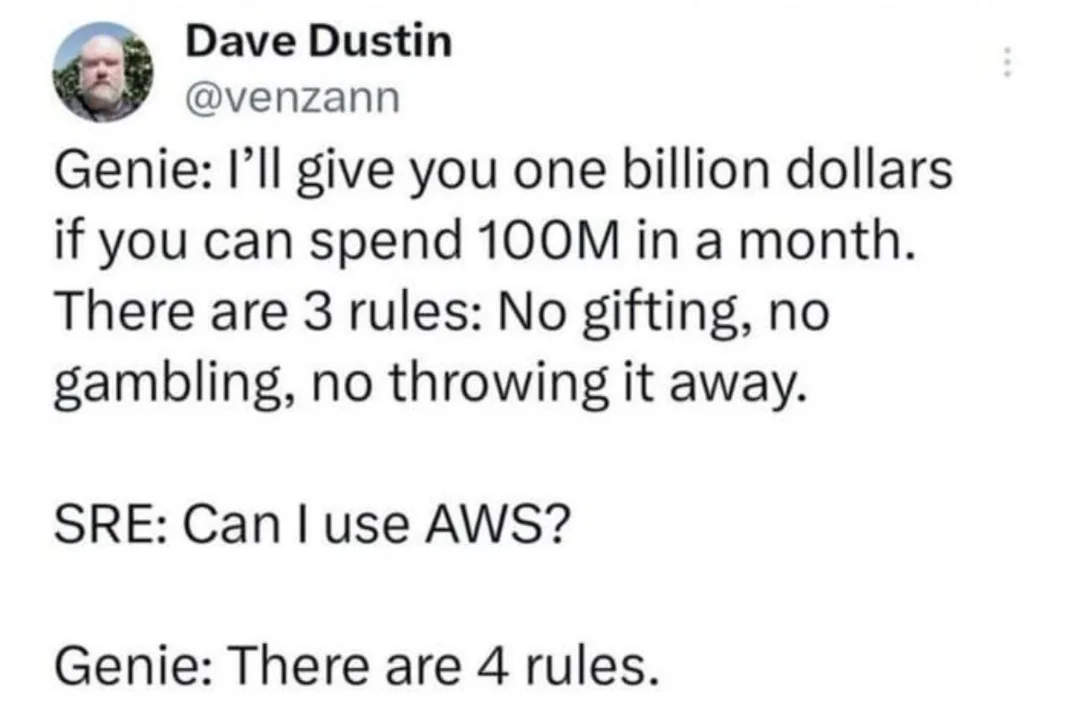this post was submitted on 25 Jul 2024
584 points (98.3% liked)
Programmer Humor
32365 readers
593 users here now
Post funny things about programming here! (Or just rant about your favourite programming language.)
Rules:
- Posts must be relevant to programming, programmers, or computer science.
- No NSFW content.
- Jokes must be in good taste. No hate speech, bigotry, etc.
founded 5 years ago
MODERATORS
you are viewing a single comment's thread
view the rest of the comments
view the rest of the comments

Stocks, bonds, annuities
That’s equity. Not spent money, just less-directly-available cash… But if that doesn’t count, real estate technically doesn’t either… Really tough question, depending on the circumstance
Just pay people to be your shoppers and buy as much as they can for you. And give them a good salary for it. Hiring people is not giving it away, and they are buying the stuff for you. Or hire like a private concert with someone. So many things to spend money on.
Private concerts is a good one! And then hire overpriced organizers for those events, too :D
It is spent money, because you have to buy those shares from other people. It’s literally a purchase of part of a company from another party. Just because you can liquidate it easily it doesn’t mean it’s not spent.
Arguably gambling.
GICs then!
Edit: looks like GICs are only guaranteed up to $100,000.
But honestly if you consider stocks and bonds to be gambling then you could really argue that buying anything is a gamble. Buy $100 million worth of onions and the price will go up due to scarcity, then try to sell them. Someone actually did this years ago and made a ton of money while bankrupting a lot of farmers and investors. The government responded by banning the trading of onion futures!
All this is to say it’s actually impossible to fulfill the genie’s rules if you take into account market fluctuations on the price of anything you buy.